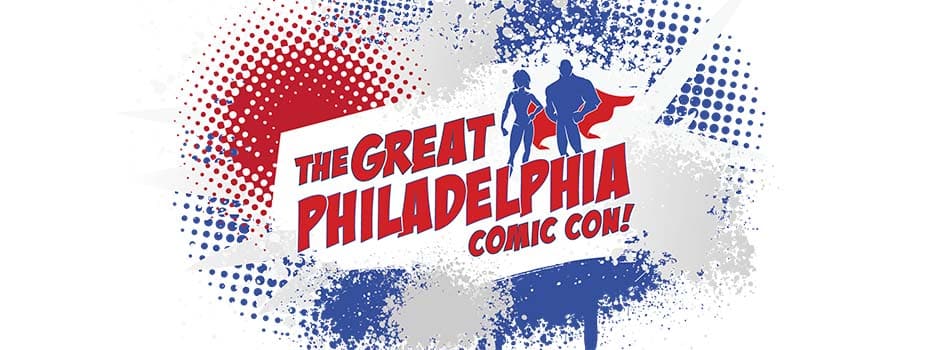Pennsylvania Attorney General Josh Shapiro has filed a lawsuit against an event operator for allegedly failing to issue ticket refunds from a planned comic convention that was initially scheduled for April of 2020. The Great Philadelphia Comic Con was initially scheduled for the spring of 2020, postponed to the fall of that year, then again to the spring of 2021 – but no event has been held, and no money has been returned, according to the lawsuit.
“COVID-related cancellations can’t be an excuse for businesses to just walk away with consumers’ money,” said AG Shapiro in a statement announcing the litigation over the lack of ticket refunds. “I’ve been clear since the beginning of the pandemic — that sort of thing is just not acceptable. By filing this suit, we’re protecting consumers by ensuring they are not victims of a different kind of con.”
The lawsuit, filed last week in Montgomery County’s Court of Common Pleas, accuses Great Conventions LLC and its owner Christopher Wertz of violating consumer protection laws by cancelling their event but holding on to consumer money.
Wertz and Great Conventions organized The Great Philadelphia Comic Con to be held at the Greater Philadelphia Expo Center in Oaks, Pa.from April 3-5, 2020. After repeatedly rescheduling the event due to COVID-19 restrictions, defendants effectively cancelled the event in March 2021. Since then, Great Conventions LLC and Wertz have ignored multiple requests from ticket holders for refunds. They made no effort to either reschedule the convention or give consumers their money back.
In the lawsuit, Shapiro asks that the court require Great Conventions LLC and Wertz to pay restitution of the withheld ticket refunds and pay civil penalties of $1,000 per violation (and $3,000 per violation for consumers over the age of 60.) It also seeks that the company and its owner be permanently enjoined against operating or selling tickets in the state.
Consumer ticket refunds have become a huge topic of contention amid the shifting event landscape in the wake of COVID-19. Consumers and state officials have filed numerous lawsuits accusing event organizers of changing policies or withholding refunds as event dates have been pushed ever-backwards due to continued restrictions on public gatherings.
Live Nation was sued over allegedly changing its rules regarding refunds for postponed concerts in the spring of 2020 before shifting that policy back to what it had been when cash flow was better. Vivid Seats was also sued over refunds, settling for millions after a class action was put together seeking remedy for the refund claims. StubHub was arguably the most brazen, giving consumers vouchers good for purchase on the resale marketplace even in the instance of events that had been fully cancelled and refunded by the organizers if the tickets had been resold on its marketplace. It was only recently that StubHub settled lawsuits with numerous states‘ attorney generals over the withheld refunds to consumers.
Even now, with live events largely operating at full capacity in most U.S. states and cities, refunds are a sore point for consumers – like in New York, where some can’t attend events due to requirements that all who attend be fully vaccinated against COVID-19, but those who aren’t can’t get a refund even though the policy was put in place after they had purchased tickets.
In the instance of the consumers who purchased tickets to the Great Philadelphia Comic Con, they have been out the cost of their tickets purchased in late 2019 or early 2020 since that time – at prices ranging between $30 and $225 plus fees per ticket. Refunds were not authorized despite the event being pushed back several times.
According to the legal complaint, the last time that consumers were even updated on the event at all was in March of 2021, when organizers said the event couldn’t be held in April of 2021 as hoped, but they “intend to schedule the show as soon as it is reasonably safe to do so, without continually changing restrictions on size or audience capacity,” adding that “at this time we are not in a position to be able to offer refunds for tickets or tables.”
In Pennsylvania, it has been more than four months since all event restrictions were lifted, but still no event, and still no refunds. The lawsuit is built on consumer protection laws in Pennsylvania that prohibit misrepresentation of goods, prohibit false advertising, and prohibit fraudulent or deceptive practices.
In many instances, legislation has been introduced asking that event organizers be legally obligated to provide consumers with full refunds including all fees (less actual delivery costs incurred for tickets that have been physically shipped). That would empower a more direct approach by officials looking to curb this sort of behavior, but thus far the efforts have found substantial pushback from promoter and venue interests, both at the federal level (BOSS Act) and in states like New York and Massachusetts, among others.
Until then, it’ll be up to action like this one to help make consumers whole if event operators go rogue (or silent) after things get pushed around by outside circumstances.




